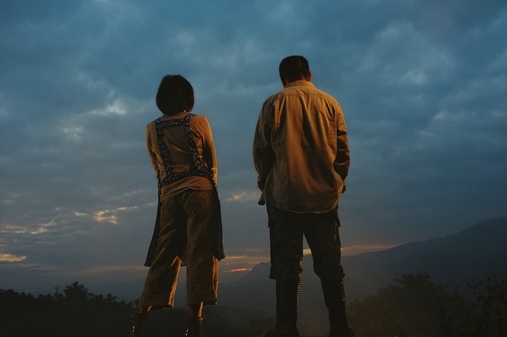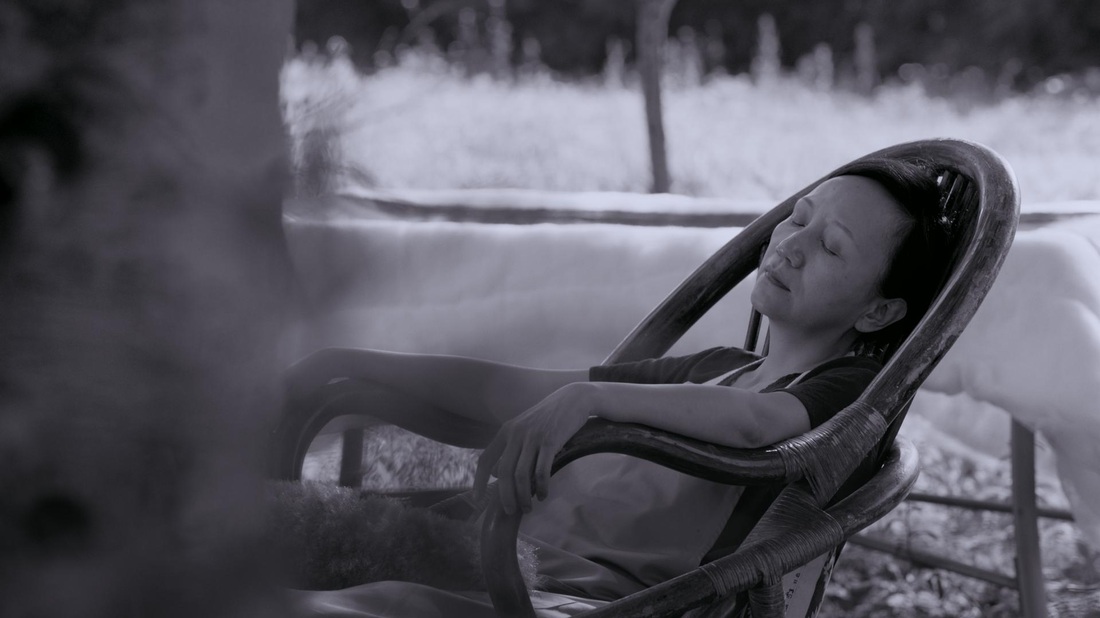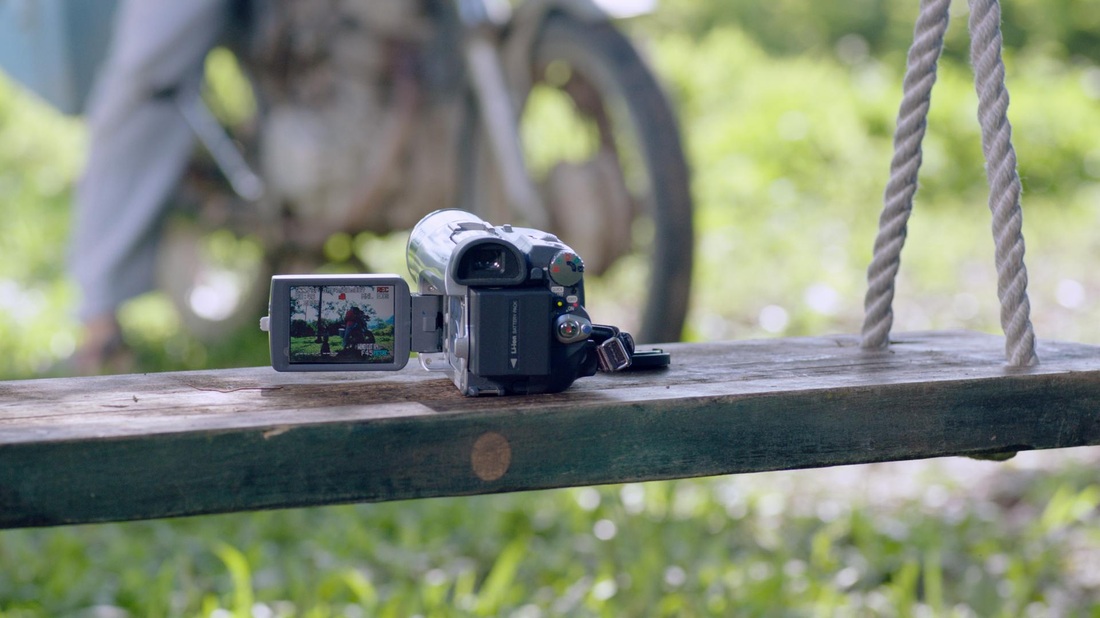Director’s statement by Chen-ti KUO
The dream that faded just before dawn.
Was it real or not?
--“Diecisiete Haiku” Jorge Luis Borges 1981
The dream that faded just before dawn.
Was it real or not?
--“Diecisiete Haiku” Jorge Luis Borges 1981
The Boar King is a fictional movie inspired by real events.
After Typhoon Morakot hit Taiwan in 2009, residents living in the mountains in the
south faced a difficult decision: Should they move and leave their homeland, which
had been destroyed overnight by the typhoon, or stay and rebuild their lives and
homes. The protagonists in this story are the people who chose to stay.
The first image that came to my mind when I started writing the script for The Boar
King was that of a woman, standing in a green field under the sun, unfolding a
piece of cloth – a bedsheet that had been soaked in the mud that had flowed into
her home when the typhoon struck, but is now pristine clean. She hangs it on a
clothesline. A southwesterly breeze is blowing over the valley, and the bedsheet is
swaying in the wind. The woman slowly realizes the significance of this scene, sighs
and a gentle smile crosses her lips – feeling liberated. There is a caring gaze coming
from behind the camera – a gaze that links a cherished time in the past and warm
expectations toward the future. This story is about this mysterious onlooker, and his
long drawn-out farewell.
The past here is represented by way of a handheld “family video,” which is saturated
in beautiful, bright colors, with its frame espousing the point of the view of the
video-maker. The present is depicted in black and white, while the wider frame
seems to be the omnipresent third party. Compared to the “dream” and “memory”
sequences, the present seems harsh and bitter. But when a bright colored butterfly
flies and crosses over into the black-and-white reality, the boundary between reality
and dream is broken, and the woman starts to walk toward her future with the
blessing of the onlooker – just like she is walking toward her dream.
After Typhoon Morakot hit Taiwan in 2009, residents living in the mountains in the
south faced a difficult decision: Should they move and leave their homeland, which
had been destroyed overnight by the typhoon, or stay and rebuild their lives and
homes. The protagonists in this story are the people who chose to stay.
The first image that came to my mind when I started writing the script for The Boar
King was that of a woman, standing in a green field under the sun, unfolding a
piece of cloth – a bedsheet that had been soaked in the mud that had flowed into
her home when the typhoon struck, but is now pristine clean. She hangs it on a
clothesline. A southwesterly breeze is blowing over the valley, and the bedsheet is
swaying in the wind. The woman slowly realizes the significance of this scene, sighs
and a gentle smile crosses her lips – feeling liberated. There is a caring gaze coming
from behind the camera – a gaze that links a cherished time in the past and warm
expectations toward the future. This story is about this mysterious onlooker, and his
long drawn-out farewell.
The past here is represented by way of a handheld “family video,” which is saturated
in beautiful, bright colors, with its frame espousing the point of the view of the
video-maker. The present is depicted in black and white, while the wider frame
seems to be the omnipresent third party. Compared to the “dream” and “memory”
sequences, the present seems harsh and bitter. But when a bright colored butterfly
flies and crosses over into the black-and-white reality, the boundary between reality
and dream is broken, and the woman starts to walk toward her future with the
blessing of the onlooker – just like she is walking toward her dream.




